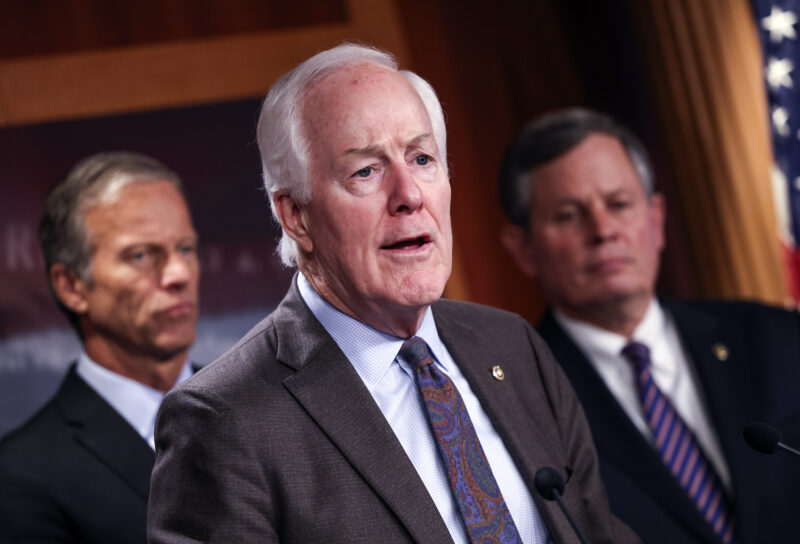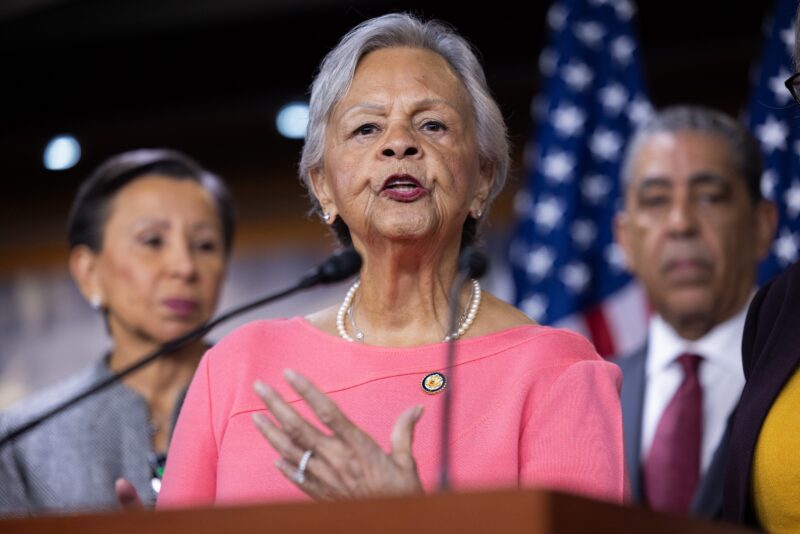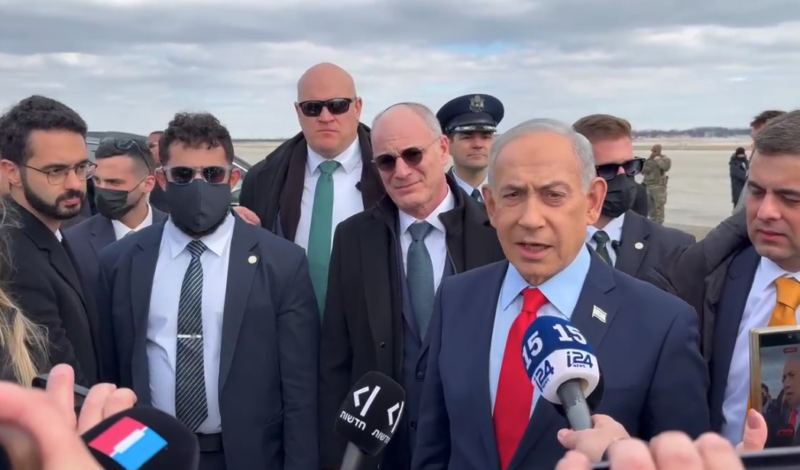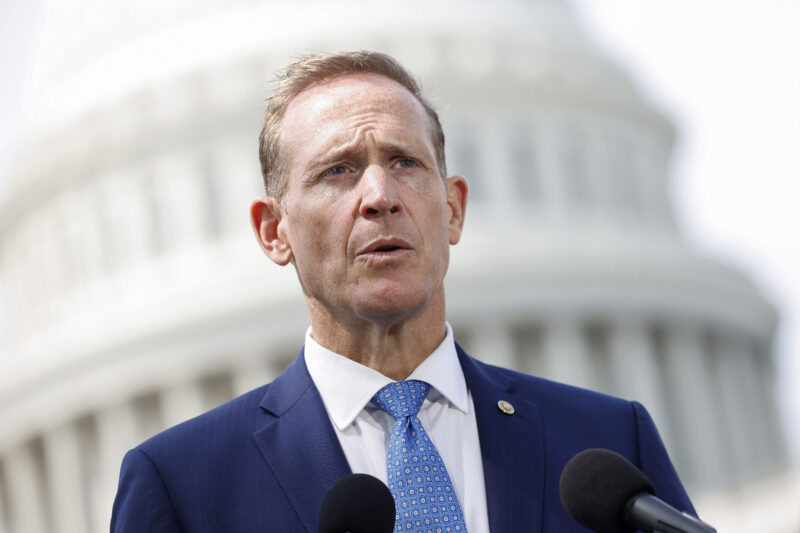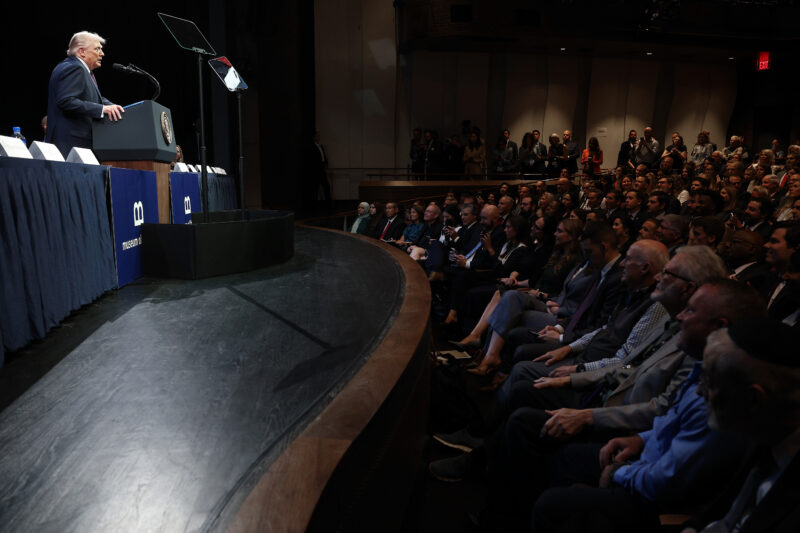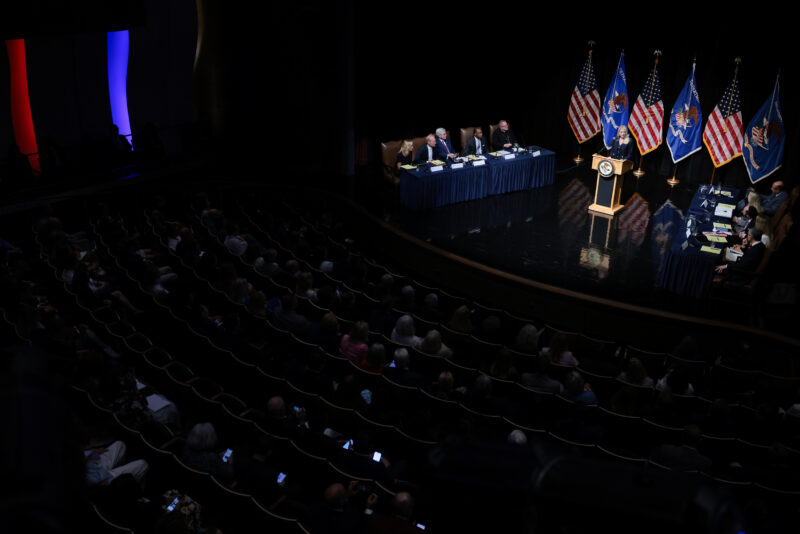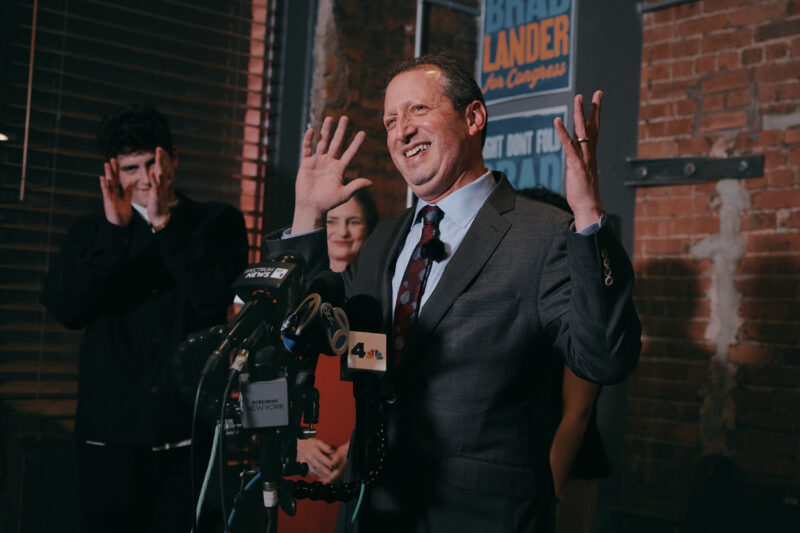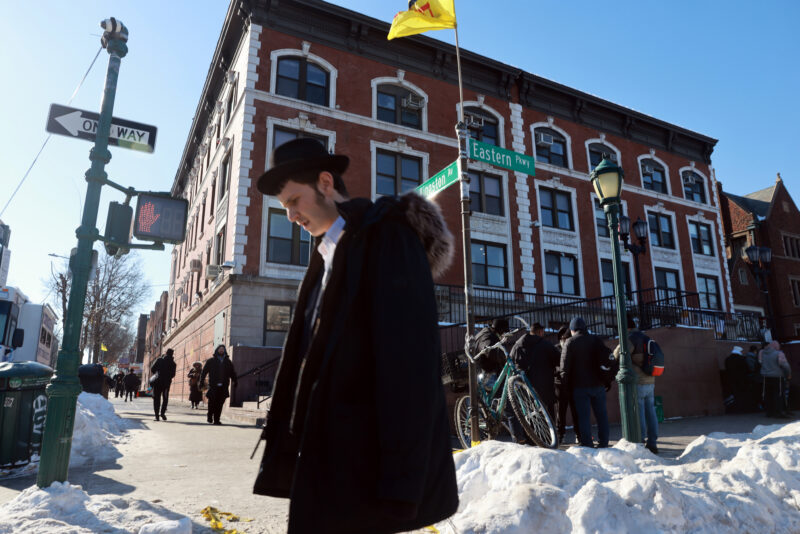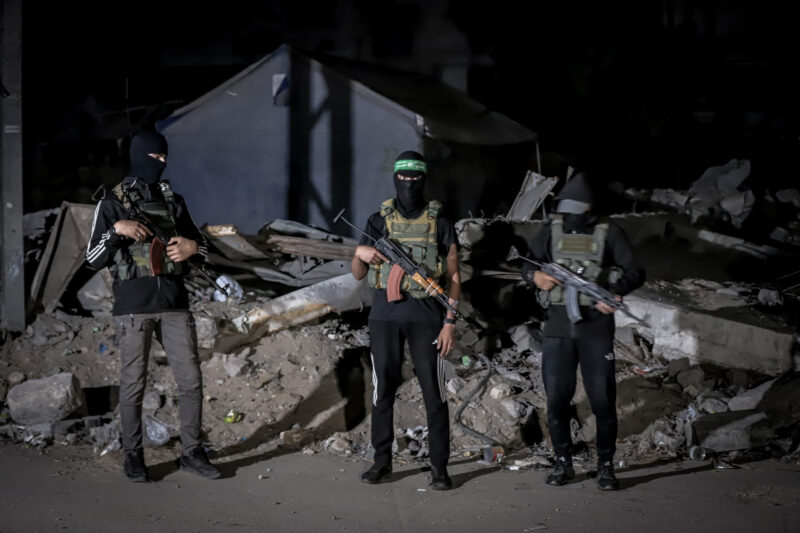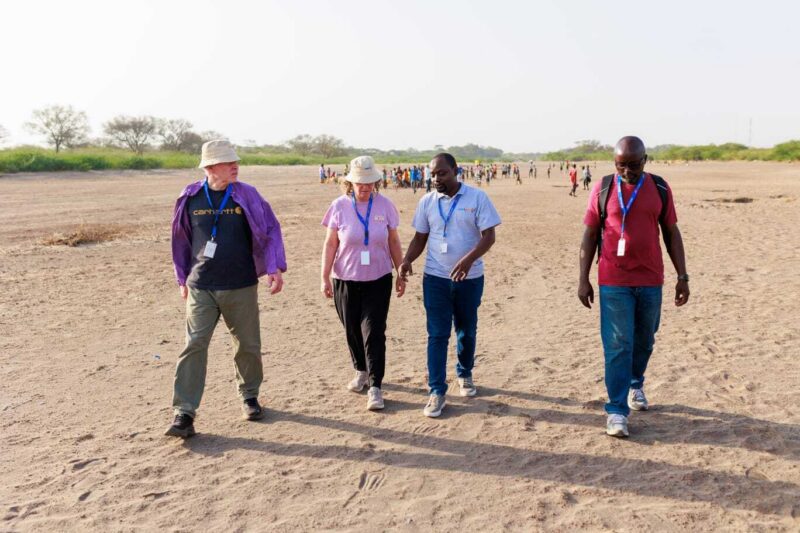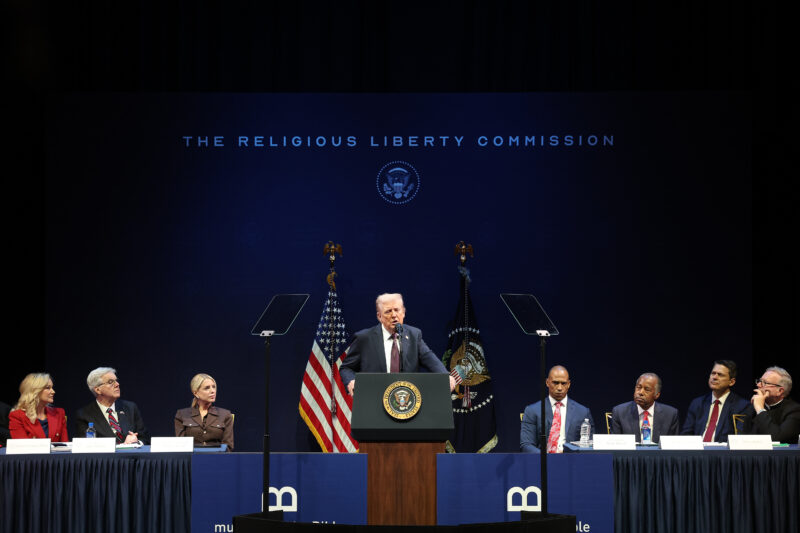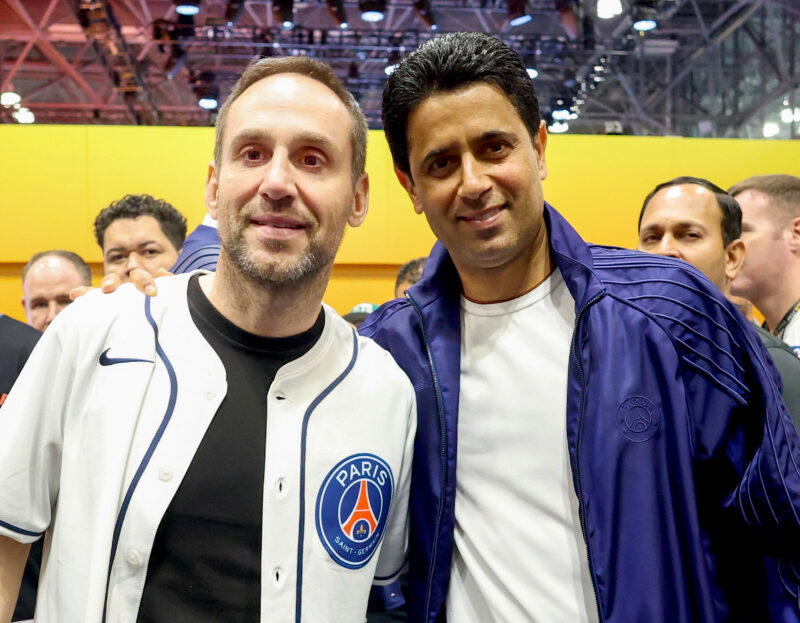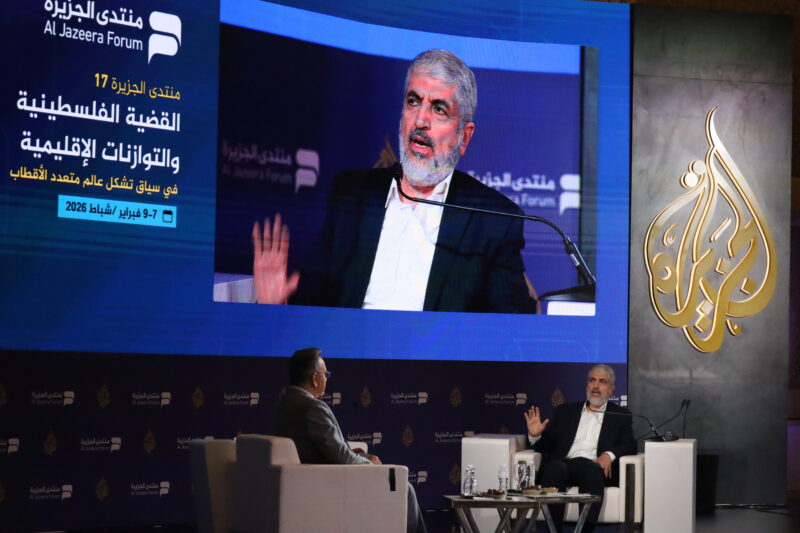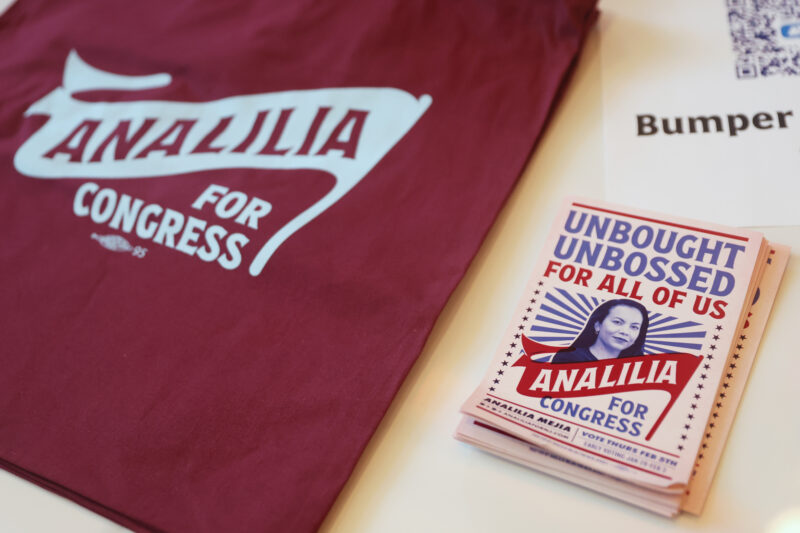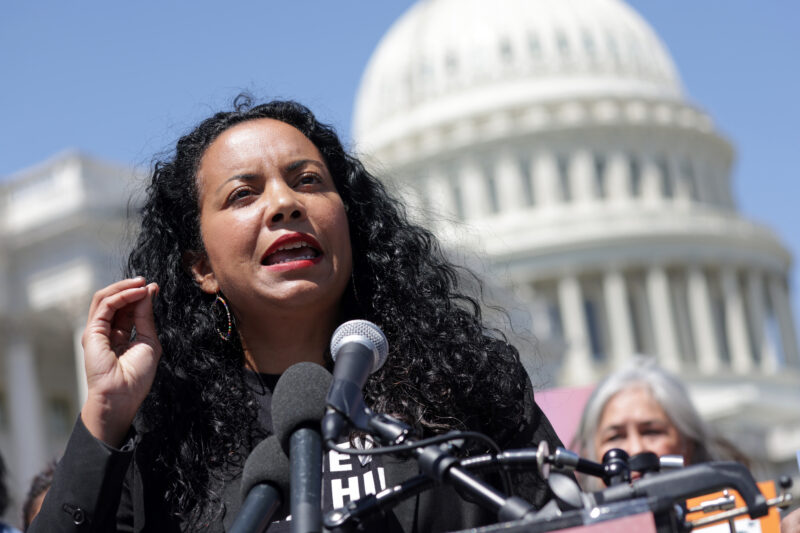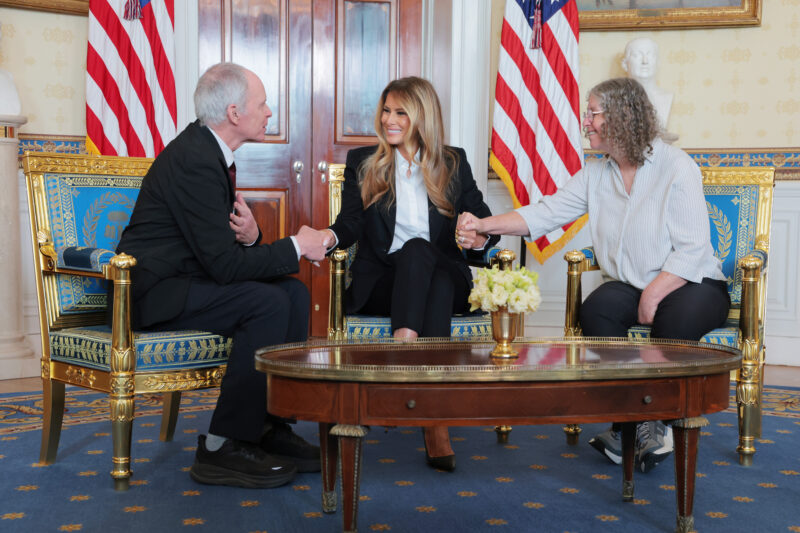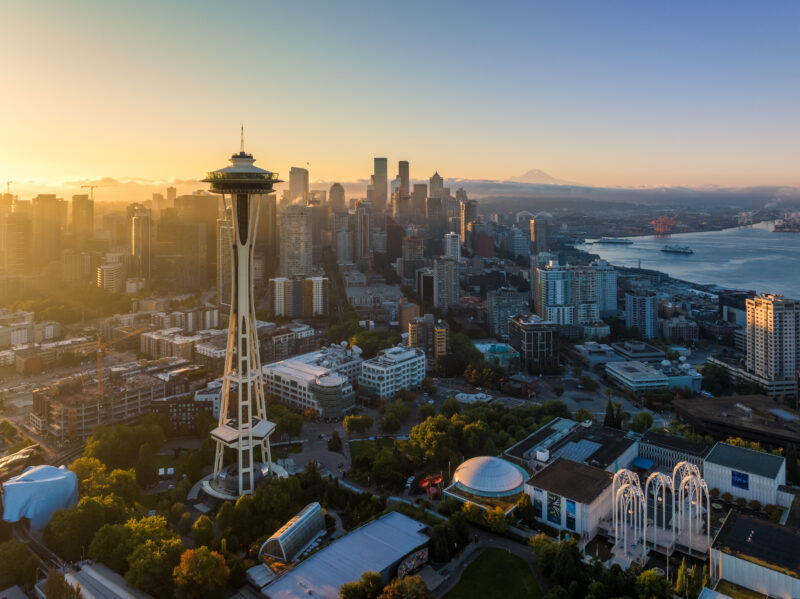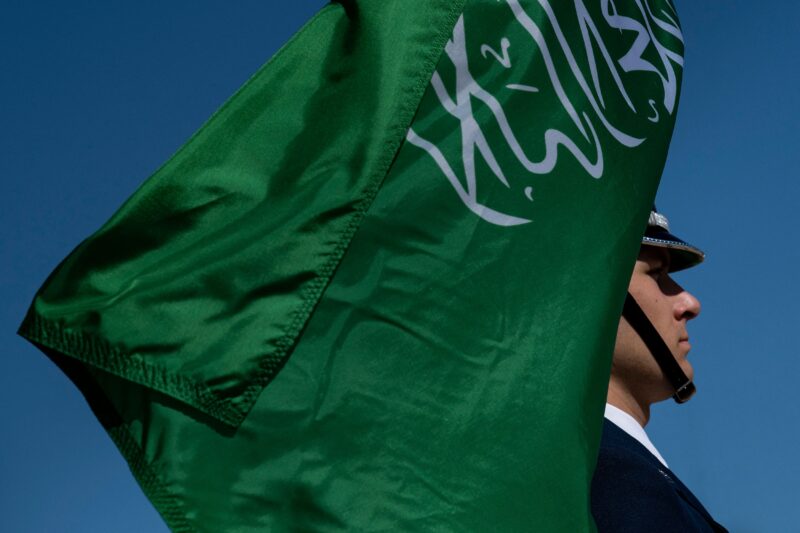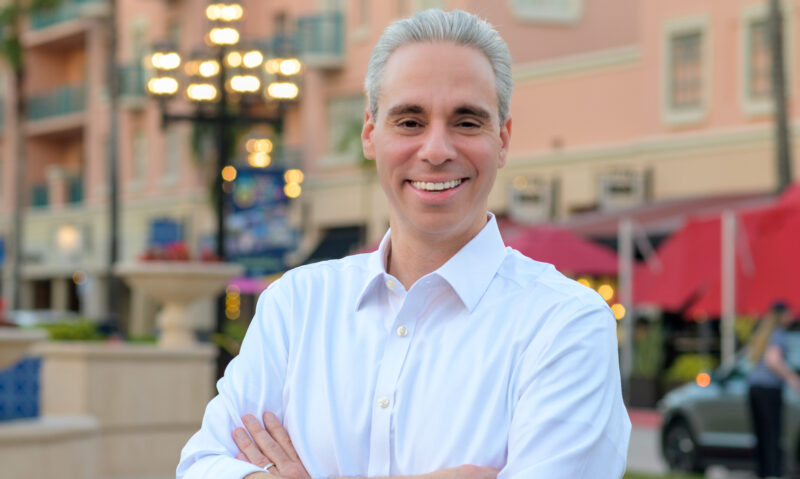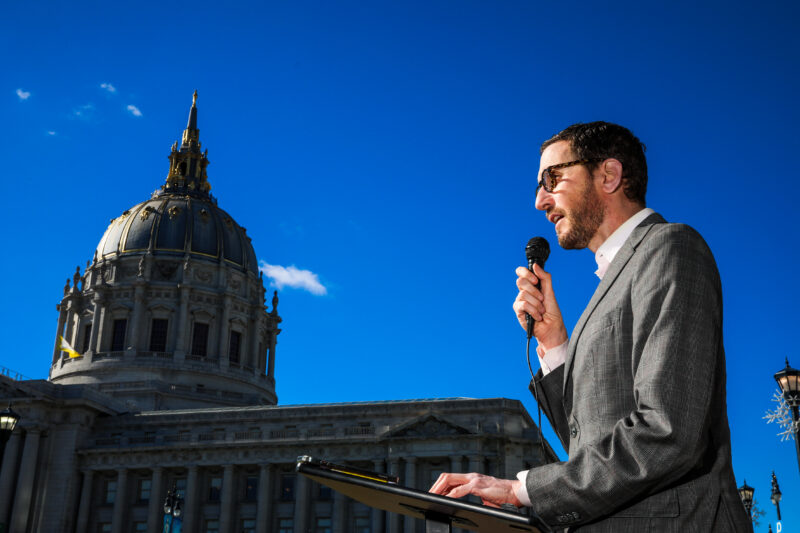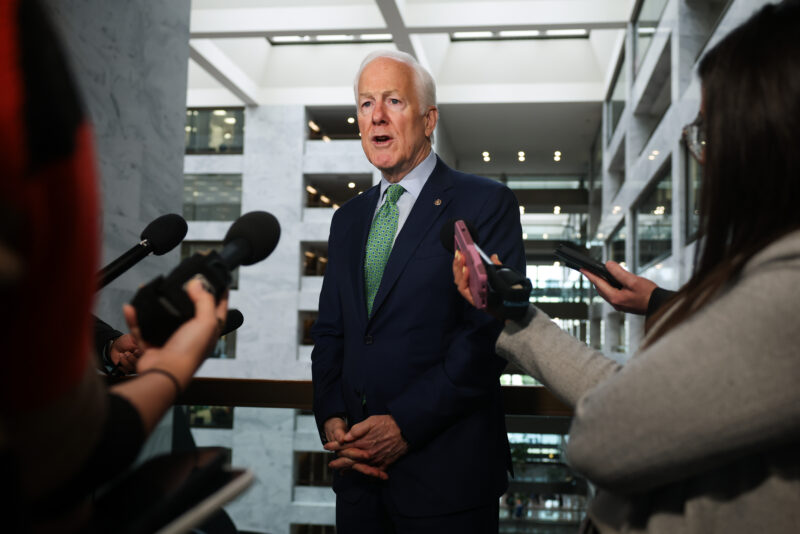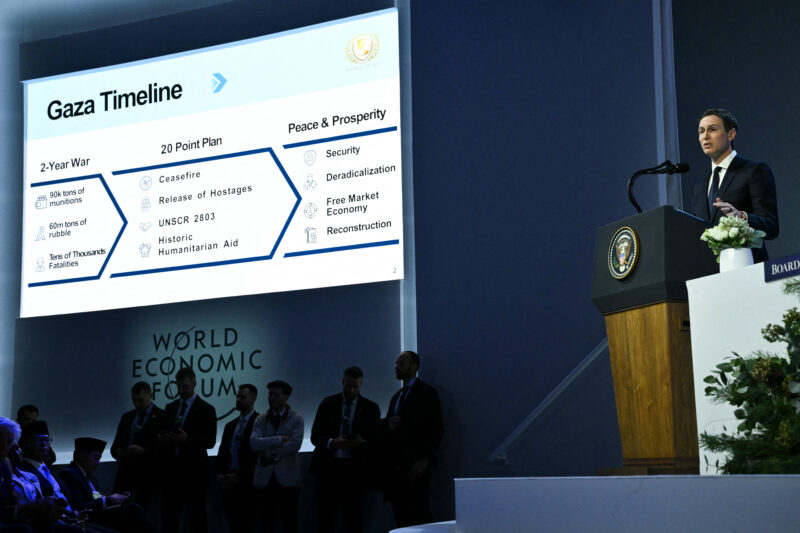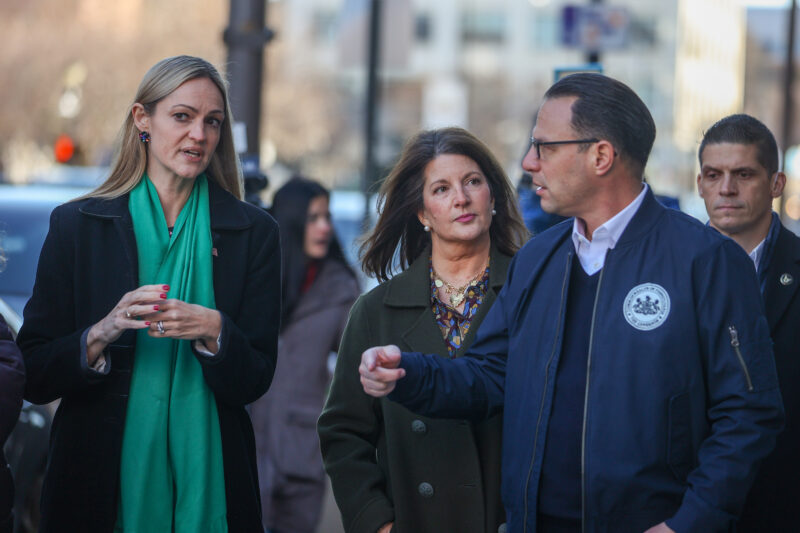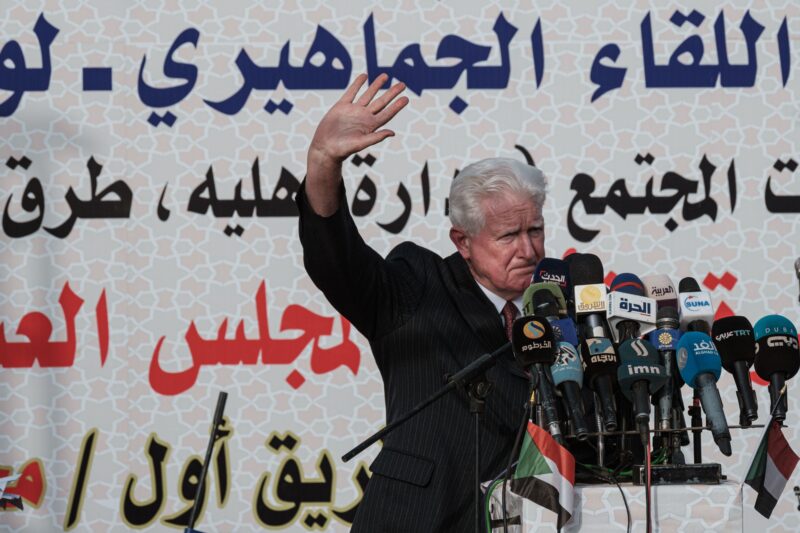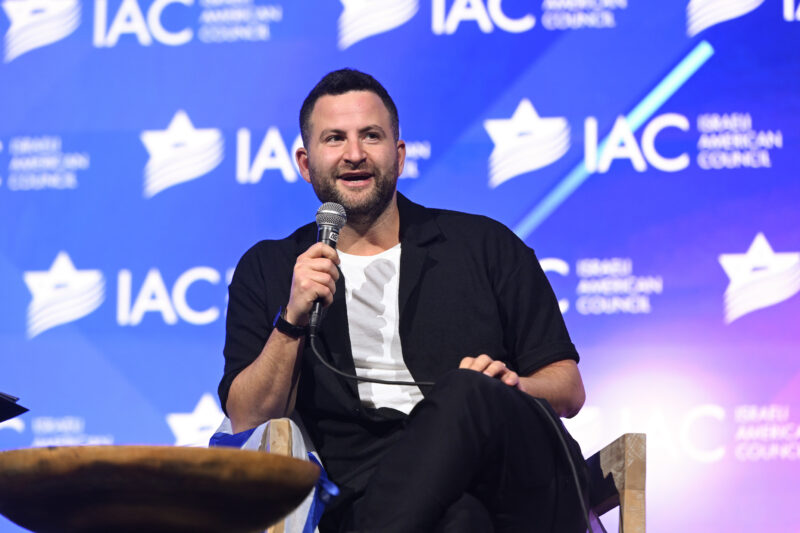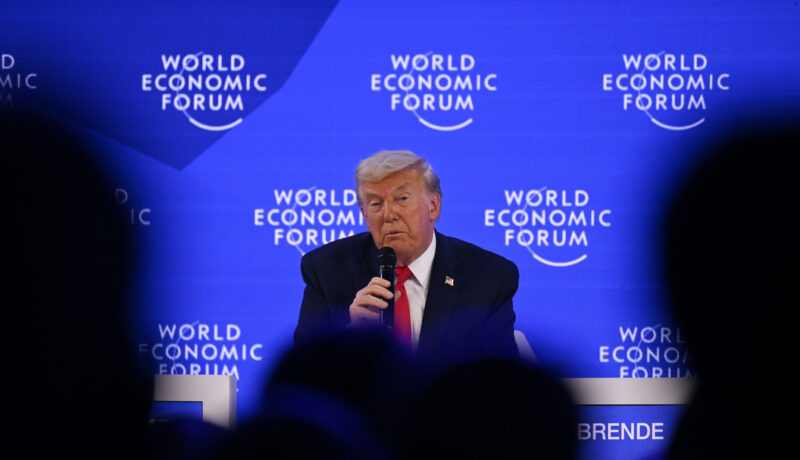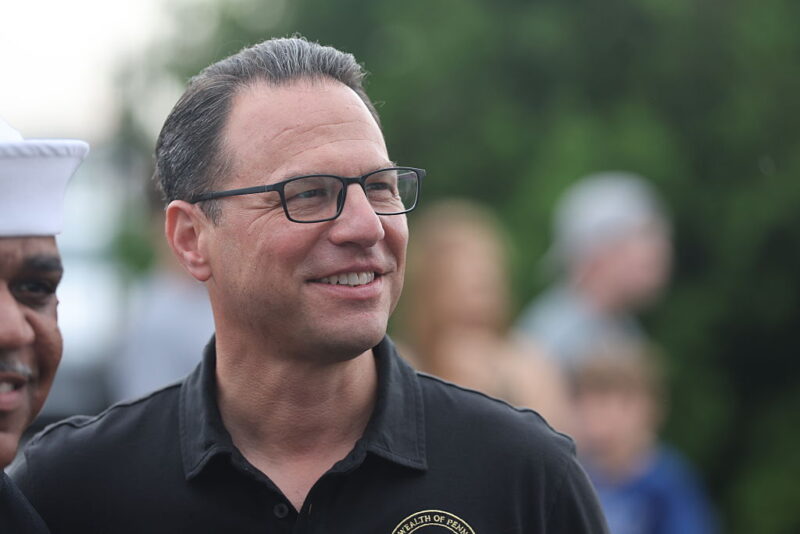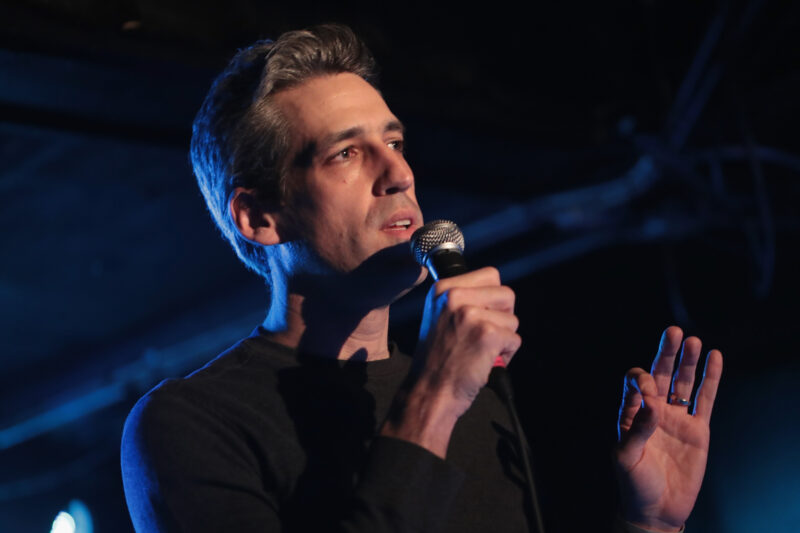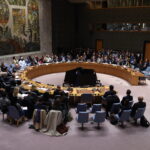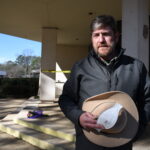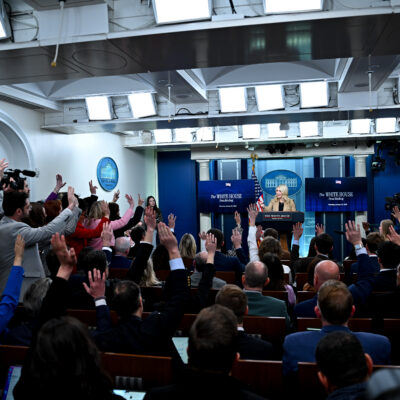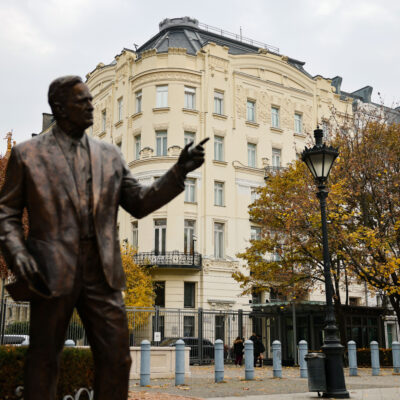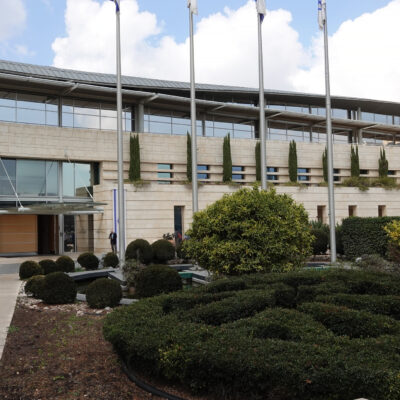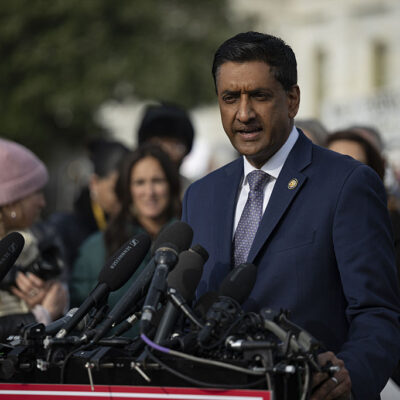Sharansky: ‘The Iranian regime was exposed before its people as a paper tiger’
The former Soviet dissident said the Iranian people’s fear of the regime has weakened, making the time ripe for a revolution

Noam Galai/Getty Images
Israeli politician Natan Sharansky speaks during 'March For Israel' at the National Mall on November 14, 2023 in Washington, DC.
For decades, former Israeli politician and Soviet refusenik Natan Sharansky has championed the cause of freedom from oppressive regimes. Dissidents across the world have found inspiration in his books and sought his advice and support.
Iranians seeking to topple the totalitarian mullahs’ regime are no different.
Soon after Israel began its strikes on the Islamic Republic’s nuclear, weapons production and military sites, Sharansky, who has been in contact with Iranian dissidents, expressed hope that the war would increase pressure on the regime from within Iran, leading to its downfall.
That hope has been reflected in statements by President Donald Trump and Israeli Prime Minister Benjamin Netanyahu during the operation, though after the interview, Trump told reporters on Air Force One that he favors stability over regime change.
Sharansky spoke with Jewish Insider on Tuesday about the prospects of the Iranian people rising up against Supreme Leader Ayatollah Ali Khamenei, even after a shaky ceasefire had been declared between Israel and Iran.
This interview has been edited and condensed for clarity.
Jewish Insider: What did this war between Israel and Iran mean for the possibility of regime change in Iran?
Natan Sharansky: It’s difficult to speak now, because we don’t know what kind of [ceasefire] agreement it is, whether it is the type with Hezbollah, the type that prevents Iran from rebuilding their ballistic missiles.
What is important is that the regime has been very weakened in the eyes of its own people.
A regime like Iran needs control not only over practical matters, it needs a way to keep its people under control, and the only control they had is through fear. The moment the level of fear goes down, or the empire looks weak, or some serious event causes people to doubt it, the regime can fall apart very quickly.
If some people cross the line of fear and go to the streets and resist, [the regime] can fall in a few days, as it did in Eastern Europe or in Tahrir Square in Egypt.
[On Monday], I thought we were very close. The fact that Israel was destroying the symbols of the regime, one after the other — the [Islamic Revolutionary Guard Corps] headquarters, the Interior Ministry that controlled people’s movement — meant the regime was being weakened in the eyes of its own people.
JI: Do you really think the mullahs’ regime is so close to collapse?
NS: In a totalitarian society, there are three kinds of people. There are those who are with the regime; there are the dissidents, the very few who speak out; and the majority, the double-thinkers, who don’t believe in the regime, don’t want the regime, but are afraid to speak out.
Iran was unique among the dictatorial countries in the Middle East [in] that it had a very developed civil society. There were women’s organizations, students, trade unions organized against the regime.
I can tell you that in the estimation of many dissidents when we had a meeting 15 years ago in Prague, we chose Iran as the most likely candidate for a revolution.
In 2009, you had the beginning of a revolution, but [former President Barack] Obama decided engagement with the regime was more important than changing the regime, so the regime was strong enough to destroy [the opposition].
Now, not only is the regime weaker in the eyes of the people, but it was exposed as a paper tiger so quickly and it lost all symbols of power.
JI: The public conversation in the U.S. has been very nervous about the prospect of regime change.
NS: This debate about whether they should change the regime or not — it’s like whether to attack [the nuclear facility in] Fordow or not. You don’t change the regime by throwing another bomb.
The regime can be changed by people on the inside, if they stop being afraid. If a small group stops being afraid and goes to the streets, it’s very risky. If many people think it’s possible and millions stop being afraid, that’s the end of the regime.
[French President Emmanuel] Macron said yesterday that he was angry and that the Iranian people should decide, not the Americans. He’s right that it’s for the people to decide, but the people have been controlled by fear for many years.
We don’t have to physically change the regime; we have to help the people see the regime is weak. At the moment we have the Nachshons [the first Israelite to enter the Red Sea before it was split in the Exodus story]. This is how it happened in many other places, like in Romania. The moment they go out and show they are not afraid, the regime will be finished in two or three days.
I think we are now very close to this.
JI: Do you think statements about regime change from Israeli leaders and President Trump helped?
NS: The leaders of the free world need to show their real attitude toward the dictatorship and their support for the people. Especially the Americans and Europeans. That was the failure in 2009. All that was needed was for leaders to say, “We are with you,” but they said the opposite, that they want engagement.
Today it is the opposite. It is the clear position of the free world that in heart and spirit they are with the people of Iran who want to be free. It doesn’t mean we’re saying we will change the regime — we cannot do that, it would just mean continuing the war. It does not mean trying to turn Iran into a colony.
[The purpose of the war is] for them not to continue to blackmail [Israel] and make our lives miserable as they tried to do for many years, but we should be interested in the Iranian people seeing that the regime is weak and the sympathy of the world is on their side.
Israel mostly behaved very cleverly and toed a thin line to make it clear that we are not fighting with the civilians, we are damaging the regime and the image of the regime in Iran as much as possible. I think that even if some ministers did not understand that is the aim, Israel’s leaders did this well.
JI: What do you think was the impact of the bombing of the gate to the notorious Evin Prison, where dissidents are held and tortured?
NS: It was the right thing to do, but maybe it would have been wiser to do it two to three days later, when the authorities lost control of the streets and the prisoners could run away. Is it legitimate to help political prisoners run away? Of course it is legitimate. But it’s a good thing to do when the regime starts losing control.
JI: Does the ceasefire make regime change more or less likely?
NS: We have to see the conditions of the ceasefire, and whether it will help the regime restore the sense that they are strong. It’s clear that the regime is much weaker internationally and the nuclear threat that was so big and looming above us for decades is now [lessened]. Whether this regime is weakened from the inside, we have to see.
JI: As someone in contact with dissident movements, what are you hearing about the movement in Iran?
NS: A lot of dissidents in America and in London and inside Iran are really mobilizing.
I was told yesterday that the price of a Starlink internet receiver rose from $400 to $2,800 in a few days. That means that while, officially, the internet is blocked, people want to be in contact. They want to coordinate and smuggle more and more of this equipment. That’s one parameter from which you see that people feel the moment is coming.
I would like to see this, but we don’t know exactly what is happening.
I think that the moment Hezbollah fell, the [Iranian] regime felt it was in danger. They executed hundreds of people. Iran probably leads the world in executions, but in recent months they accelerated and almost doubled them. They’re very rational; this is how they control people. It’s important to them that people are scared. Even if the attack by Israel was a surprise, Iran was prepared for it in terms of how to control the people.
What happened in the last 12 days is that people could see how weak the regime is. There is a very close connection between the regime’s level of control of the people and how it looks. A dictator who looks weak cannot survive. That is why we are very close.
JI: What are dissidents currently doing against the regime?
NS: There are many different groups of dissidents. There are those representing different aspects of human rights and groups who speak for the Kurds, Azeris, Balochis — only half of the population of Iran are Persians. It’s always like this when facing a totalitarian regime. You have groups with different interests and the secret police plays off of this.
That’s OK. The important thing is whether, at this critical moment of revolution, they can speak in one voice. That is a process that is happening these days. Those in America, those in London and in some other European countries and those who are in the field — their interconnection is growing with every minute. That is why I mentioned Starlink; it’s very important because the authorities tried to break the internet communications between the people.
The only thing that is working is state propaganda, which is why it is so important that Israel struck the centers of official propaganda.
Many channels of contact are being established these days, which is very important. Some leaders are taking initiative. It’s important that different groups succeed in uniting for at least a short period of time and speak in one voice. It seems to me that inroads are being made, and from what I hear, very intensely.
Please log in if you already have a subscription, or subscribe to access the latest updates.






